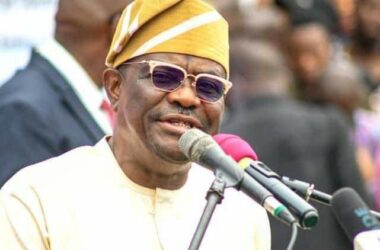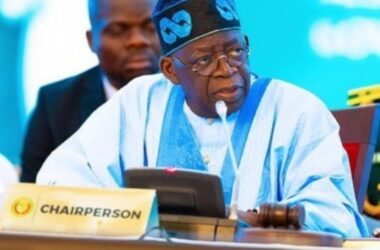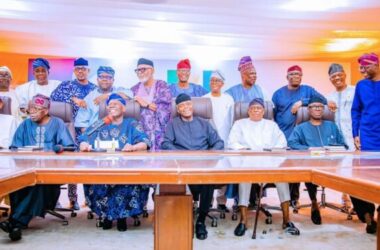‘Let there be light!’
An ancient, timeless command, as automatic in its effect as the phenomenon it called into existence.
The advent of electricity (as a catalyst for the generation of light, heat, locomotive power and other forms of energy) has had a transformative – indeed miraculous – impact on the modern world, so transformative that it is almost impossible to imagine a world when there was no electricity. Perhaps the transition of the global economy from its hunter-gatherer origins, to the agrarian stage, to the industrial age, to the post-industrial age, and now to the digital age (aka the 4th Industrial Revolution) would have been impossible without electricity.
No modern economy can deny the importance of electricity as a driver of industrial development and overall economic growth. On a number of levels, it enables two other main catalysts of development: technological innovation and education. Thanks to its power, technological improvements have enabled the factors of production, such as people (i.e. labour), land, and capital (money, buildings, machines, etc.) to become even more productive. The things we now take for granted – automobiles, aircraft, modern drugs and healthcare services, indoor plumbing, air-conditioning, radio and television, not to mention information technology, telecommunications technology, robotics and other computer-controlled machinery – were all made possible by technological innovations which for the most part were powered by electricity.
The same goes for education, skills acquisition and human capacity building.
Arguably, therefore, the more electricity a nation or other entity is able to generate and distribute, the greater its prospects for economic growth, because there is more rapid production at all levels of the economic value chain. No surprise, then, that there is such a marked difference between the wealth of nations that generate adequate, and uninterrupted (or at least relable) power (in terrawatts, no less), and the relative poverty of countries or entities which only generate electricity in a few thousands (or at most, tens of thousands) of watts.
For the above reasons, if there is any one sector in the Nigerian economy that is crying for bold and far-reaching eforms ‘like yesterday’, it is the power sector. While this is, of course, true of EVERY single sector, there is no denying the fact that reform in the power sector in particular, if faithfully carried out, would revolutionize the country’s entire economy and launch the country more emphatically from the margins she currently occupies, to the mainstream of the modern industrial world.
This distinction is not lost on relevant stakeholders in the development of our country, including leaders and policymakers, and not least of all the administration of Pres. Bola Ahmed Tinubu. The President’s signing, this last March, of the Nigeria Electricity Act 2023 was a reflection of his commitment towards the consolidation of the sector in line with the government’s developmental aspirations and global best practices. Of particular interest is one of the Act’s key objectives, namely, to diversify and decentralise the power sector, as seen in the provisions which grant state governments and private individuals the license to transmit electricity in areas covered by the national grid. The law also de-monopolized electricity regulation by transmitting such responsibilities to state governments anytime they establish their regulatory agency. Also of note is the adoption of renewable energy and the reformation of the governance structure of the power sector, which – if faithfully and competently implemented – is capable of driving investment, enhancing electricity access, and fostering long-term economic growth.
That was just the cue many forward-looking stakeholders – political entities, organizations and individuals alike – seemed to have been waiting for. And now, even before the ink has dried on the President’s signature, comes an initiative designed to achieve the very aims of the Act – in the form of a partnership between the business tycoon, Mr. Femi Otedola, Chairman of Geregu Power Plc; the Government of Lagos State; and the African Development Bank (AfDB) Group, for the purpose of establishing a power transmission station. The agreement follows Otedola’s meeting in Lagos with Lagos State Governor Babajide Sanwo-Olu and the President of the AfDB Group, Dr Akinwunmi Adesina. The station, when it comes on stream, will be the first of its kind in Nigeria, and will be yet another example of the growing trend towards the execution of infrastructure projects using the Public/Private Partnership (PPP) mechanism.
The proposed project ticks all the right boxes on so many levels, as all three parties seek to take full advantage of the new Electricity Act and establish a sustainable electricity market with a strong commercial framework.
For Otedola, the move is geared not only towards meeting the energy needs of Nigerians, but also intended to deepen his corporate footprint in the thriving power sector in Nigeria, as well as to position his company, Geregu Power Plc, in the mainstream of Nigeria’s power ecosystem. Geregu Power Plc is a power generation company which was originally constructed and owned by the Federal Government of Nigeria and commissioned into service on February 16, 2007 to generate electric power and supply same to the National Grid managed by the Transmission Company of Nigeria (TCN). Although the FG still holds a 20% stake in the company, the majority stake (80%) is held by Otedola’s Amperion Power Distribution Company Limited, which acquired the company from the FG on November 1, 2013. The company began generation in March 2007, with a capacity that progressively increased from an original installed capacity of 414 mw to 435 mw by August 2016.
The deal with the AfDB Group and the Lagos State Government gives Geregu Power Plc the right platform to actualize its stated mission – ie to accelerate economic growth through sustainable power generation in Nigeria – and it’s over-arching vision, namely, to be the leading provider of integrated power supply in the West African sub-region. In the quest to be at the forefront of providing sustainable power generation (using a Combined Cycle Gas Turbine (CCGT) plant, which is a safe, clean and efficient mode of generating power), Geregu has already made giant strides toward its long-term goal of pushing the boundaries of sustainable integrated power supply to meet the demands of its customers and clients. The PPP power transmission project it is embarking on gives Geregu the opportunity to demonstrate its belief in efficient energy consumption and the need to reduce our dependence on fossil fuel energy, especially in areas like transportation.
The project also lines up with the plans and aspirations of the Lagos State Government as far as leveraging on the energy industry to drive its developmental agenda (also known as the THEMES Agenda) in pursuit of the Greater Lagos Initiative of Gov. Sanwo-Olu is concerned. For one, the project will plug a huge energy supply gap in the acclaimed Centre of Excellence. Lagos State is, of course, Nigeria’s biggest economy and the 5th largest in Africa, with a GDP of $29 billion as at 2022. Electricity demand in the state was calculated at 10,000 megawatts at year-end 2022, whereas the actual power supply the state was a paltry 1900 megawatts from the national grid.
Efforts to bridge that huge gap predates the proposed partnership – and even the new Electricity Act, for that matter. In the past, though, the State Government’s steps in this regard were seriously constrained by the fact that, as previously mentioned, electricity generation was under the exclusive purview of the Federal Government . In 1999, however the Government under then-Governor Bola Tinubu signed a multi-million dollar deal to distribute electricity to about 8 million residents of the state – using off-grid sources.
But the March signing of the Electricity Act, allowing states like Lagos to generate, transmit and distribute electricity in areas covered by the national grid, means that the state is now free to complement what it gets from the grid. To this end, it has already released a 40-page document titled ‘ THE LAGOS STATE ELECTRICITY POLICY’ which highlights the state’s plan to increase and provide efficient electricity to its residents and the businesses domiciled in its domain. Among the features of the Policy, which sit very well with the proposed partnership with Mr. Otedola and the AfDB Group, are the following:
– A Lagos Electricity Market: Cognisant of the need to ensure an increase in the quality and quantity of services to Lagos residents by providing a deregulated market for electricity which will include several major players like the transmission and distribution companies, among others, the Policy says this market will provide both a legal framework and a roadmap for the private sector in terms of commercial viability and efficient service delivery.
– Promoting the use of renewable energy: The Policy recognizes renewable energy sources as crucial to the increased generation of power in the state. Already, of the approximately 16,000 mw the State gets to push its economy and provide electricity (1900 mw of it from the grid, as already mentioned) 13,100 mw comes from off-grid sources, with a small percentage of it from renewable sources. Thanks to the signing of the Act, Gov. Sanwo-Olu said in announcing the Policy document, the state will generate 1 gigawatt of renewable energy by the year 2030 – thereby reducing its reliance on off-grid plants located in the state – and at the same time reduce emissions, which helps mitigate the effects of climate change.
For the short term, though, the focus will be on improving the efficiency and reliability of power supply in the state, which the three-way partnership with Otedola and the AfDB Group is sure to help facilitate. For the medium-term (say, between 2023 and 2028), the state government envisages a fully operational, credible, commercially oriented, technically compliant, well-funded and financially feasible Lagos Electricity Market. Also, within the next 5 years, electricity in the State would witness growth from the current 1900 mw to at least 4,500mw (by 2028).
– Inclusion: The Policy highlights the need to include under-served and un-served areas in the state, for which it is set to implement the Lagos Off-Grid Electrification Agency, which will deliver a minimum of 50 mw of new capacity annually to these areas.
In the long term, Lagos State expects that by the end of 2036, residents will have a reliable and constant power supply to match standards elsewhere in the world – via a highly diversified and sustainable power sector which is able to meet both residential and industrial demand. It is also the expectation of the implementers of the Policy that the power generated would be clean and commercially viable.
It is in light of these goals that the partnership with Otedola and the AfDB Group holds out so much hope, not just in regard to the foregoing objectives, but also as a sort of forerunner to an expected investment boom in the sector – on the part of international organizations, private investors, distribution companies, and independent power producers, etc. That is why Gov. Sanwi-Olu has mandated the Lagos State Ministry of Energy and Mineral Resources to incentivize and provide an enabling environment for private sector investment.
The African Development Bank (AfDB) Group also sees enormous benefits in this partnership. As a continent, Africa is endowed with a variety of renewable and non-renewable energy resources. And yet, most African countries – including Nigeria – are characterized by low access to affordable and reliable modern energy services. The urgent need to address the continent’s energy needs in order to unlock its developmental potential cannot be overemphasized. Not only that, the continent’s energy sector needs to evolve at a rapid rate to be able to respond to both local and global environmental concerns (climate change being the most serious) and to significantly reduce reliance on fossil fuels, which – in our case in these parts – are often imported from abroad.
So the partnership with Lagos State and Otedola lines up squarely with the AfDB Group’s most recent Energy Sector Policy, which gives a general overview of the Bank’s approach to the energy issue as it serves and engages its markets and partners – like the Otedolas and Lagos Governments of this world. The AfDB’s Policy has the following objectives:
(i) to support regional ember countries (RMCs) in their efforts to provide all of their populations and productive sectors with access to modern, affordable and reliable energy infrastructure and services; and
(ii) to assist RMCs develop their energy sector in a socially, economically and environmentally sustainable manner.
To achieve the above objectives, the Bank has identified 9 key principles that will guide its interventions in the energy sector.They are as follows:
(i) ensuring energy security and increasing access for all;
(ii) moving towards a cleaner energy path;
(iii) enhancing governance at the national level;
(iv) innovating, in order to increase financial flows in the energy sector;
(v) integrating effectiveness principles;
(vi) promoting social and environmental responsibility;
(vii) integrating a response to climate change;
(viii) fostering knowledge transfer; and
(ix) mainstreaming the gender dimension.
As a rule, this Policy focuses on sub-sectors that are the most likely to address current and future energy demands, while contributing to the development of a sustainable energy sector. However, since access to energy varies across regions and countries, subject to available resource endowments, the Bank will tailor the supply options to specific energy needs of countries and segments of the population.
That explains the Bank’s enthusiasm in entering into the partnership with the Lagos State Government and Mr. Femi Otedola – the perfect symbiosis, say watchers of the proposed collaboration, between an intergovernmental organization such as the AfDB Group, a public sector entity such as the Lagos State Government, and private-sector players such as Mr. Otedola and the corporate world he represents.
That also explains the general consensus of most stakeholders across and beyond the shores of Nigeria, that President Tinubu’s action in signing the Electricity Act of 2023 – and in particular the provision devolving energy-generation and transmission powers to subnational bodies, corporate organizations and individuals – is nothing short of a masterstroke. The confidence being expressed in many quarters, that the President’s action will finally unleash the country’s long dormant economic potential, as far as utilizing the full measure of its energy endowments is concerned, is far from misplaced.
If morning shows the day, as the saying goes, the Otedola/Lagos State/AfDB Group partnership is a clear sign of good things to come.






